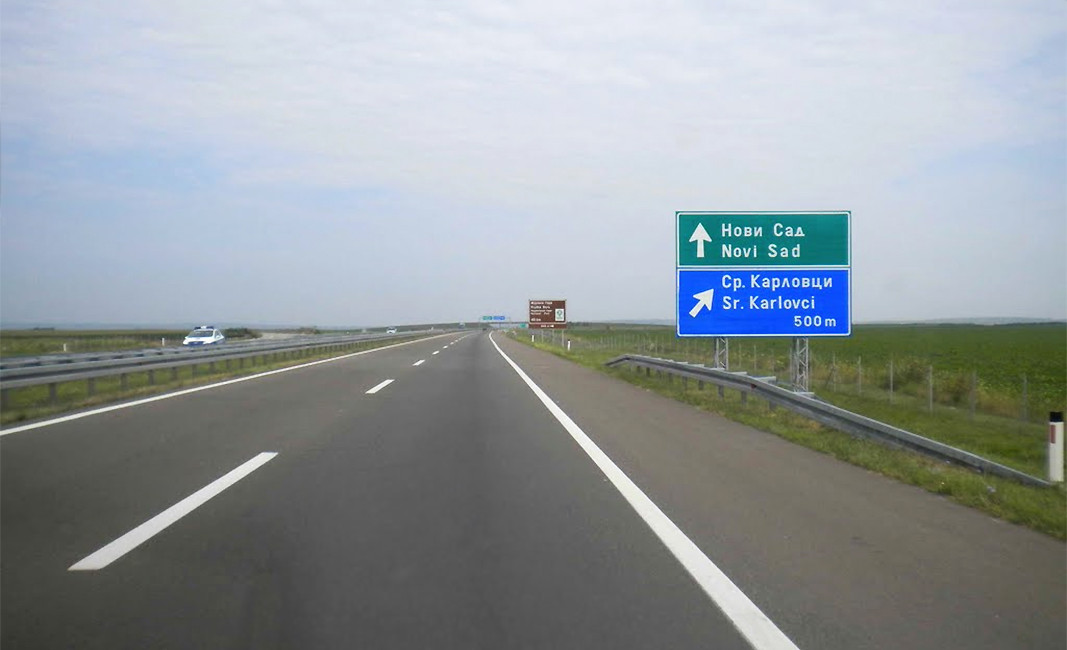Croatia unveils the Peljesac Bridge

Croatia unveiled the Peljesac Bridge connecting the southern Adriatic coast to the rest of the country, hina.hr reported. The facility costs EUR 525 million. Peljesac Bridge is the largest infrastructure project in Croatia. The EU allocated EUR 357 million from Cohesion Policy funds. The bridge was built by China Road and Bridge Corporation. Peljesac Bridge has 13 spans, five of which are 285 meters long, six centrally reinforced concrete pylons with a height of 33 meters, and two lanes together with a stop lane that will serve for bridge maintenance. Besides the bridge’s 2.4 km, the support infrastructure include an additional 32.5 km of new roads. Thus, the extended network will reduce the journey between the two ends of the D8 motorway on each side of the Neum corridor by 37 minutes. The authorities of Bosnia and Herzegovina expressed discontent that the tourist flow would bypass the country. In 1969, the Republic of Dubrovnik ceded Neum to the Ottoman Empire to break away from the Republic of Venice. To this day, these 9 kilometers of land still tear up the Croatian coastline.
Romania rejects speculation regarding territorial claims to Ukraine

The Romania Ministry of Foreign Affairs said that the map published by Dmitri Medvedev, Deputy Chairman of the Security Council of the Russian Federation, which “fancifully assigns territories of Ukraine to Romania and other countries neighboring Ukraine is part of Russia’s propaganda and disinformation”. Romania’s Foreign Ministry firmly rejects the approach of the Deputy Chairman of the Security Council of the Russian Federation. “Such so called “proposals” and “analyses” aimed at randomly redrawing the borders of some states and thus promoting the violation of international law are nothing more than completely unsuccessful attempts to justify their own conduct of disobeying the rules-based international order”, Romania’s Ministry of Foreign Affairs noted.
Kosovo to apply for EU membership by the end of 2022: Foreign Minister Donika Gervalla

Kosovo will apply for EU membership by the end of 2022, Foreign Minister Donika Gervalla said on Tuesday, July 26, the website Exit reported. 5 EU countries do not recognize Kosovo as an independent state. Donika Gervalla specified that Kosovo had already implemented most of the Stabilization and Association Agreement, the European Union’s framework for “stabilizing the region and establishing a free-trade area”. At the same press conference, Minister Gervalla also commented on Kosovo’s application for membership in the Council of Europe, adding that she expected a swift and successful process. Kosovo submitted a letter of request for membership in the Council of Europe in May, 2022.
Butterfly larvae damage fields in Greece, Turkey and Bulgaria

More than 15% of the sunflower crops in Greece and Turkey have been damaged by a dangerous larvae. The pest damages large areas on both sides of Maritsa River near the Bulgaria-Turkey border. Greek opposition MPs called on the government to immediately declare a state of emergency. Turkish experts warned that this may affect the price of sunflower oil. 25,300 hectares of land, or one-third of the sunflower fields in the Bulgarian region of Dobrudzha have been affected by the butterfly, the Dobrudzha Institute of Agriculture said.
Larvae from the Crambidae Family have destroyed huge areas of sunflower, alfalfa and other crops on the Greek island of Evros and other regions. 400,000 hectares of land were affected in Edirne, Kirklareli and Tekirdag regions in Turkey.
Serbia introduces an improved system for measuring the average speed on all motorways

An improved system for measuring the average speed on all motorways in Serbia has been operational since July 29, this country’s Traffic Police announced. The system will also monitor whether drivers and passengers wear seatbelts and whether drivers use mobile phones unlawfully. Thus, Serbia’s authorities aim to increase road traffic safety. Over the past 5 years, an average of 40 people have died in road accidents on Serbian motorways on an annual basis. Meanwhile, Police radars will continue to control speed. The speed limit in Serbia is 120 kilometers per hour. The distance between the cities of Belgrade and Nis, for instance, must be covered in no less than 1.58 hours.
Written by: Ivo Ivanov
English version: Kostadin Atanasov
Photos: EPA/BGNES, agerpres.ro, nsuzivo.rs, libraryThree-time world champion and Olympic weightlifter Carlos Nasar will be holding a special event with the Bulgarian community in London on 23 November. According to the organisers, it will be an open conversation in which Nasar will discuss his journey..
On 16 November, we celebrate Caritas Day, when we honour the Catholic Church’s charity organisation that brings hope to those in need through care and acts of mercy . It reminds us that financial gain is not what matters most. What truly matters is..
The first museum of investment gold is welcoming visitors in Plovdiv who want to learn more about the history of money and its connection to gold – from the birth of gold, its cosmic origin, and its journey to Earth, to how this precious metal has..

+359 2 9336 661
